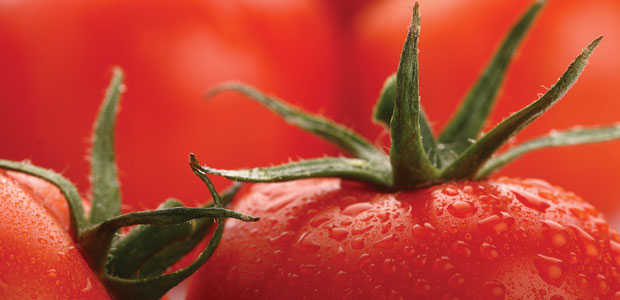Advertisement
A Natural Arsenal Against Cancer
Your prevention basics

As our understanding of cancer evolves, our knowledge of associated risk factors is becoming more and more refined. Recent research highlights the risk factors and simple steps we can all take to live healthy and promote cancer prevention.
At some point in their lives, over 40 percent of Canadians will find themselves faced with a diagnosis of cancer. Every year cancer is responsible for one-quarter of all deaths in Canada. Despite these grim statistics, cancer survival rates are on the increase, giving hope to individuals and families dealing with this diagnosis.
A sustainable prevention strategy
The foundation of a sustainable cancer prevention strategy includes exercising regularly, keeping weight within a healthy range, choosing anticancer foods, and opting for a vitality-supporting lifestyle.
This straightforward yet powerful approach has been shown to reduce the chance of death from all cancers dramatically: a 30 percent reduction in cancer deaths in men and a 24 percent reduction in women is seen by simply following these recommendations. The judicious use of specific supplements may further improve our odds of beating cancer.
Moving toward prevention
Current exercise recommendations stipulate that Canadians should be active for a minimum of 2.5 hours per week in periods of at least 10 minutes at a time. Heeding these recommendations strongly supports a cancer-prevention agenda.
Postmenopausal women can significantly decrease their risk of developing invasive breast cancer by engaging in three hours of brisk walking per week. Even women who wait to start exercising until after diagnosis can increase their chances of surviving breast cancer by almost 40 percent.
Regular exercise improves survival rates in gastric, colorectal, and prostate cancer. Although cancer stage and the physical effects of treatments can make exercise a challenge, an individualized routine can have very positive effects upon chances of survival.
One of the ways that exercise may decrease cancer risk is through its impact on insulin. Hyperinsulinemia, or a high level of insulin in the blood, commonly occurs alongside obesity and insulin resistance. Elevated insulin levels have been linked to cancer risk and may act as a growth-promoting agent. Exercise improves the sensitivity of the body’s cells to insulin, reducing circulating levels in the blood and may therefore decrease cancer risk.
Weight and cancer risk
Exercise can be doubly important to cancer prevention when it is used as part of a comprehensive weight loss strategy. Being overweight increases the chance of getting many types of cancers and may be associated with the development of more aggressive forms of cancer. Higher levels of tumour-promoting inflammatory factors are seen in overweight individuals; these levels are noticeably reduced following a period of weight loss. Maintaining a body mass index (BMI) between 18.5 and 24.9 may reduce cancer risk substantially.
Despite the benefits of having a lower BMI, weight loss during treatment can decrease survival, even in overweight individuals. Weight loss can occur as a side effect of therapy or as part of the process of cancer itself. Maintaining pretreatment weight will support successful treatment. On page 126 we provide tantalizing and nourishing recipes for those undergoing cancer therapies and for those who have recovered.
Making food your medicine
Like exercise, good nutrition is a cornerstone of healthy living for everyone, but this is especially true if cancer prevention is on the agenda. An anticancer diet focuses on fibre-rich, unprocessed foods alongside a decreased intake of alcohol and processed meats. Poor dietary habits alone are estimated to be responsible for up to 9 percent of all cancers.
Eating your veggies
Ignoring your mother’s advice by not eating your fruits and veggies is an established risk factor for many cancers. It is therefore surprising that high fruit and vegetable consumption has not demonstrated unanimous benefit in cancer prevention. This may be explained by the fact that some cancers may be more sensitive to the phytochemicals in a plant-based diet, or that some foods may have more potent cancer-fighting attributes than others.
Here are some of the fruit and veggie superstars that should feature in your anticancer diet.
Broccoli and leafy greens (cruciferous vegetables)
These have been shown to prevent incidence and progression of prostate cancer, decrease the risk of non-Hodgkin’s lymphoma, and reduce lung cancer in smokers.
Onion, garlic, leeks, and chives (alliums)
Vegetables from this group have been shown to decrease the risk of gastric cancer, endometrial cancer, and colorectal cancer. Look for delicious recipes for this cancer-fighting food group in the article, “Onions, Garlic, and Leeks!”.
Berries and pomegranates
In vitro evidence suggests powerful anticancer activity of berries; pomegranate reduces prostate-specific antigen (PSA) doubling time in men with prostate cancer.
Tomatoes and tomato products
These may decrease prostate cancer risk. Cooked tomatoes and tomato products may provide even more benefit than raw.
Meat and cooking methods
While certain fruits and vegetables appear to reduce one’s risk of getting cancer, a high intake of red and processed meats is a known risk factor for various cancers including colorectal, lung, and stomach. Reducing intake of red and processed meat may protect against these cancers.
Cooking methods impact the cancer-preventing compounds in foods. Steam-cooked broccoli retains more cancer-fighting constituents than boiled broccoli. Cooking fish and meats at high temperatures associated with grilling, frying, or broiling can increase the risk of cancers.
Fibre and glycemic index
Ensuring a healthy dose of fruits and vegetables in the diet also helps to elevate dietary fibre. High-fibre diets play a role in the prevention of colorectal cancer. Breast cancer survival is also improved when individuals eat high amounts of fibre; 21 to 38 g are recommended per day, depending upon gender and age. The low glycemic index of fibre-rich foods may also be beneficial in the prevention of prostate, colorectal, and endometrial cancer.
Beverages with benefits
Your cancer risk is also impacted by what you drink. Green tea, both as a beverage and in its supplemental form, has been the subject of much research in recent years. Studies suggest that green tea can have a potent impact on cancer, decreasing risk by as much as 18 percent for every daily cup consumed.
On the contrary, alcohol consumption, even as little as two drinks per day, increases colorectal cancer risk. People who drink more alcohol, more often are at highest risk.
Following these dietary strategies and combining them with physical activity will have the greatest effect on reducing cancer risk and increasing cancer survival.
The cancer prevention lifestyle
Aside from healthy habits involving diet, exercise, and weight management, there are many other choices we can each make every day to decrease our risk of cancer.
Do it now: quit smoking
Globally, smoking is responsible for an estimated 21 percent of deaths from cancer. Quitting smoking is perhaps the most health-preserving action that any individual can take to reduce the risk of all cancers.
Cancer prevention in your sleep
Getting a good night’s sleep is one of the most natural ways to prevent cancer. Sleep disturbance resulting from shift work and nighttime exposure to light may put you at greater risk of breast cancer. Colorectal cancer is more common with decreased sleep duration (less than six hours per night).
Sleep is also important after a diagnosis of cancer: symptoms such as pain, depression, and a decreased sense of well-being are intensified when sleep is disturbed. Sleep is important both for people with cancer and for those trying to prevent it.
Stress and cancer
Chronic stress may be a factor in the development and progression of cancer, although the relationship between the two is not fully understood. While chronic stress does not cause cancer in all individuals, it creates an environment that is favourable to cancer development and progression. Reducing stress in our lives could theoretically reduce our risk of cancer.
In people with cancer, stress-reduction strategies including meditation, mindfulness-based stress reduction, and yoga have shown tangible benefits on measures of psychological health, immune function, and quality of life. Managing stress in those diagnosed with cancer may be particularly important, as decreased levels of stress may reduce markers of progression while improving chances of survival.
Taking control of our risk factors for cancer through exercise, weight loss, diet strategies, and a healthy lifestyle can go a long way toward lifetime prevention.
Cancer-preventing supplements
Supplements may offer some additional benefits in the prevention of cancer. Consultation with a qualified health care practitioner is imperative when using supplements in combination with any conventional therapy.
Mushroom extracts
Grifola frondosa, Coriolus versicolor, and Ganoderma lucidum (reishi) increase natural killer cell function, reduce chemotherapy-induced immune suppression, and decrease the incidence of pre-cancerous lesions.
Melatonin
Melatonin reduces cancer cell reproduction and encourages cells to self-destruct. Supplementation may improve survival and response to therapy.
Vitamin D
Low vitamin D levels are associated with numerous cancers and with poorer survival after diagnosis. Many Canadians have low vitamin D levels, especially in the winter, making this an important supplement to take for cancer prevention.
Turmeric extract
Curcumin increases tumour suppression and decreases the inflammation that may be associated with cancer progression.
Green tea extract
Epigallocatechin gallate (EGCG) reduces prostate-specific antigen (PSA); decreases cancer-promoting factors; and diminishes pre-cancerous cervical lesions.





